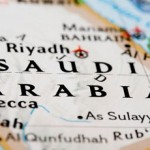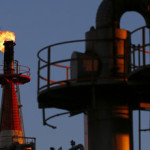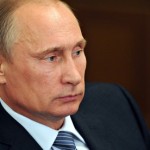Russia and Saudi Arabia Battle for Control of European Oil Market

Both Russian and Saudi companies have aggressively discounted their crude exports to Europe, dimming hopes of production cuts
A contest for dominance in Europe’s oil market is heating up between the world’s two biggest oil exporters—Saudi Arabia and Russia—as they contend with stubbornly low crude prices and the prospect of Iran’s post-sanctions return.
In recent months, Russian oil companies and the Saudi Arabian Oil Co., known as Saudi Aramco, have been aggressively discounting their crude to Europe. Saudi Arabia is now targeting countries like Sweden and Poland, where Russia has long been dominant and the Middle Eastern kingdom hasn’t had a major presence.
The competition in Europe has dimmed any hopes that Russia will heed the Organization of the Petroleum Exporting Countries’ call for a cooperative production cut ahead of its meeting in Vienna on Friday. Some OPEC members want non-OPEC states like Russia to help boost prices that have fallen by more than 60% from the highs of 2014.
“That is a good reason for the Russians not to even sit on the table with OPEC to discuss cuts,” said an official from a Persian Gulf oil-producing country.
Russia sometimes holds talks with OPEC about the market, even though Moscow traditionally has not cooperated with the group on production.
The Saudi move into Europe was clear in November when the kingdom started supplying Preem AB, Sweden’s largest refining company, for the first time in around 20 years. The refiner is owned by a Saudi businessman but is a long-standing buyer of Russian oil.
That followed Saudi oil sales to Poland’s refiners PKN Orlen and Lotos—rare deliveries of Saudi crude into Eastern Europe, where Russia has long held sway in the oil business. The Saudis are also looking at storing crude in Gdansk, an oil terminal in Poland’s Baltic Sea, so as to supply Eastern European customers more easily, a Saudi industry official said.
The competition has forced Russia’s oil companies to sell the country’s main crude export blend, known as Urals, for much less than normal. While Urals normally sells for less than the international benchmark Brent, that discount almost tripled in October because of the wide availability of Middle Eastern oil, OPEC said in its November market report.
In October Igor Sechin, the CEO of Russia’s state-controlled OAO Rosneft, accused Saudi Arabia of “actively dumping” its oil in Europe and said he would make his own moves to secure Russia’s markets.
At the time a Saudi industry official said the kingdom was just trying to satisfy demand from its customers.
Russia and Saudi Arabia have both pumped oil at record levels this year as they try to stake out and maintain larger shares of the market ahead of Iran ramping up exports in 2016, when western sanctions over its nuclear program are expected to ease.
Both Russia and Saudi Arabia produce more than 10 million barrels of oil a day, and this production level has contributed to a global oversupply which has kept prices below $50 a barrel.
The competition is likely to intensify in Europe next year when Iran, which supplied around 4.4% of Europe’s crude before its contribution was halted by sanctions in 2012, plans to return with large volumes if sanctions are lifted. Russia and Saudi Arabia stepped into the breach when the European Union banned Iranian oil imports in 2012.
The state-run National Iranian Oil Co. has already cut the official selling price for its crude headed for northwest Europe by 5 cents a barrel for December deliveries—a largely symbolic gesture because those exports are still banned under sanctions over Iran’s nuclear program.
European refiners and traders are among those that have already agreed to buy 500,000 barrels of Iranian oil a day when sanctions are lifted, while others, such as France’s TotalSA, are considering purchasing its crude, said Rokneddin Javadi, chief of Iran’s state oil company, in an interview in October. Total didn’t return a request for comment.
Amir Hossein Zamaninia, Iran’s deputy oil minister for international affairs, said in an interview in Tehran that foreign delegations that came to his country—which have included Greece and Italy—have expressed interest in buying Iranian oil as well.
A Persian Gulf country OPEC delegate said Europe’s crude market could start to resemble Asia’s, where Russia and Saudi Arabia have already tussled for market share. Russia displaced Saudi Arabia as the biggest supplier to China in May and September, though Saudi Arabia reclaimed the top position in October.
“Buyers have more power than before,” the delegate said.
The price cuts in Europe highlight a wider problem for oil producers: there just isn’t enough demand globally for all the crude sloshing around in the market. On any given day in 2015, global oil supplies outpaced demand by more than a million barrels a day.
“Any way you slice and dice it, there are way too many hydrocarbons trying to get jammed into a world that doesn’t seem hungry to digest it,” said Citibank analyst Seth Kleinman.
Source: WSJ – Russia and Saudi Arabia Battle for Control of European Oil Market




























